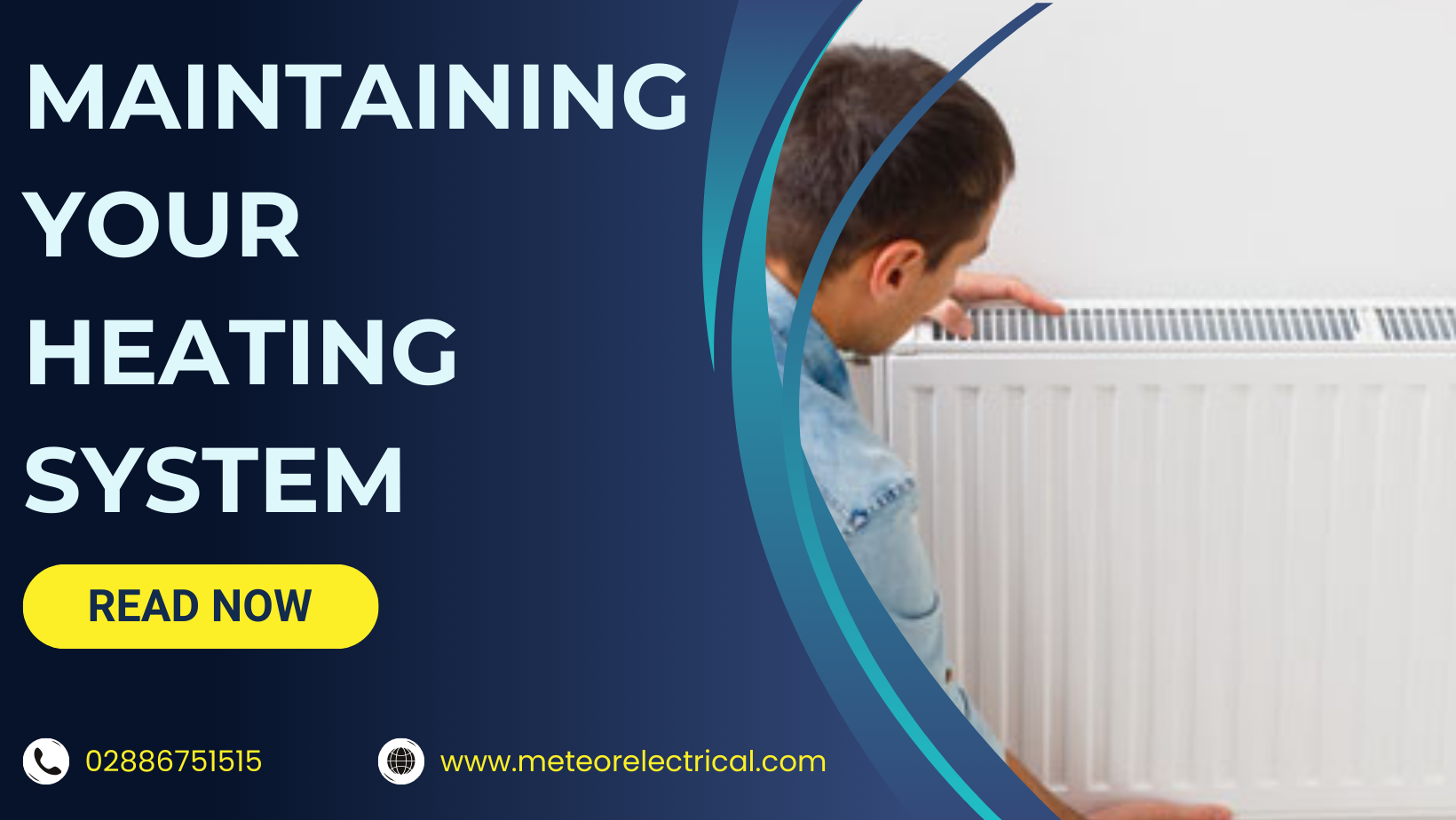10 Tips For Maintaining Your Electrical Heating System
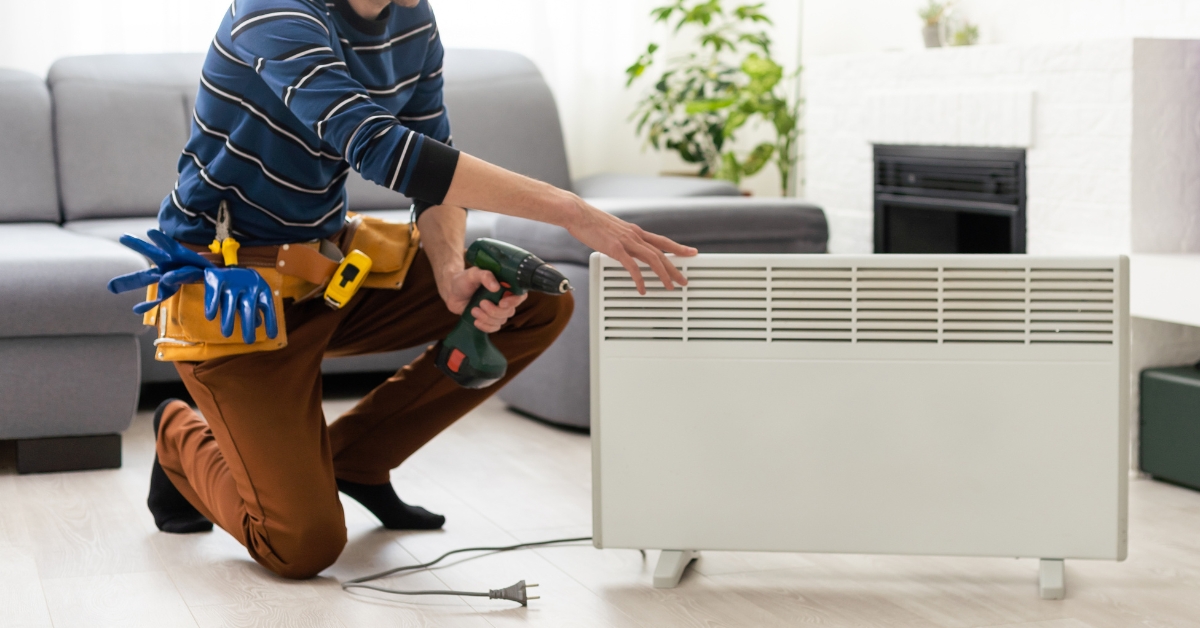
Electric heaters are becoming increasingly popular for homeowners due to their efficiency and minimal upkeep. In fact, electric heating systems now account for about 40% of home heating in the UK. One key benefit is their ease of maintenance, which requires far less effort than other types of heating systems, such as gas or oil. However, like all appliances, regular maintenance is essential to keep your electric heater running efficiently, prevent safety hazards, and extend its lifespan.
According to the U.S. Department of Energy, well-maintained heating systems can reduce energy consumption by up to 30% annually. That’s why it’s important to know how to maintain your heating system properly. In this guide, we’ll share 10 simple tips to help you maintain your electrical heating system and keep it running smoothly for years to come.
Do I Need to Clean My Electric Heaters?
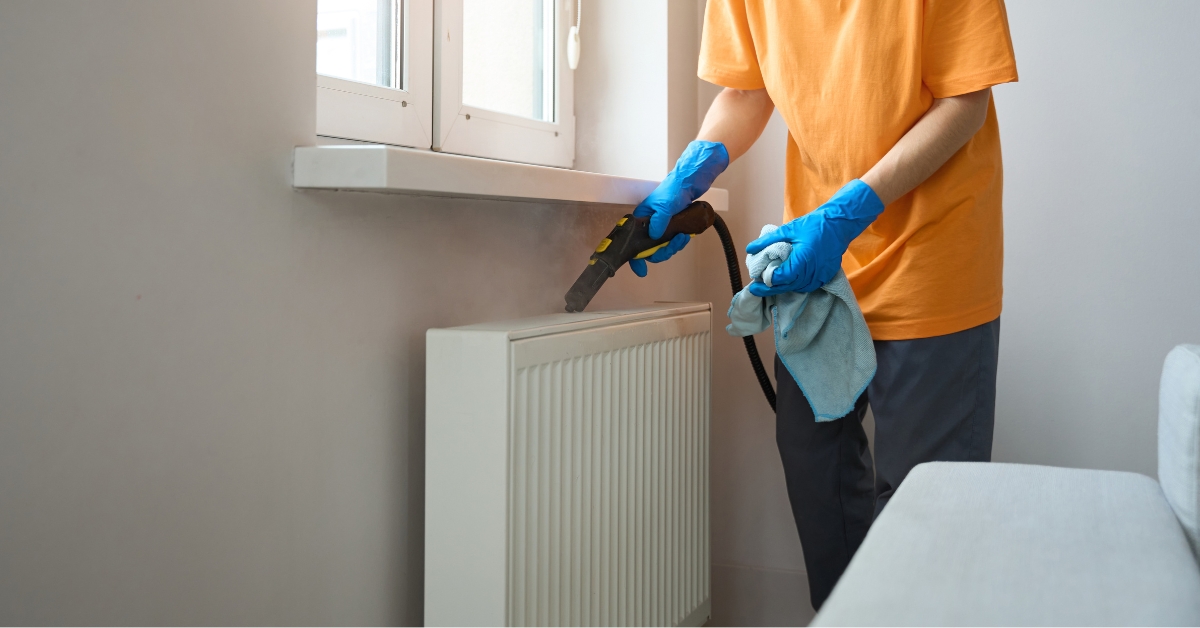
It's easy to overlook cleaning your electric heaters, but regular cleaning can greatly affect their performance and lifespan. Dust and debris can accumulate on the exterior, vents, and even inside the heating system, reducing its efficiency and potentially posing a fire hazard. Even daily activities like vacuuming or dusting can send particles into the air, settling in your heater's vents.
Regularly wiping down your heater and keeping it free from dust can ensure it operates safely and efficiently for years to come.
1. Weatherproof Your Home for Better Heating

Weatherproofing your home is a great way to reduce dust and debris and improve your heating efficiency. It helps prevent drafts, which can make your heater work harder than it needs to. Simple steps like sealing air leaks around windows, doors, chimneys, and wiring can keep the warmth inside.
Some effective ways to seal air leaks include:
- Caulking and sealing around plumbing and ductwork
- Adding weatherstrips to doors and windows
- Installing foam gaskets behind outlets and switch plates
- Using foam sealants to fill larger gaps
Proper insulation and sealing can improve your heater’s performance and reduce energy costs.
2. Check the Air Ducts
Your air ducts are crucial for distributing heat evenly throughout your home. If they’re leaking, your heater has to work harder to maintain a comfortable temperature, which can shorten its lifespan and increase your energy bills.
Inspect your air ducts for holes, cracks, or loose joints, and seal any leaks you find. If you’re not comfortable with this task, consider hiring a professional to inspect and repair your ducts.
3. Inspect Your Heater Regularly
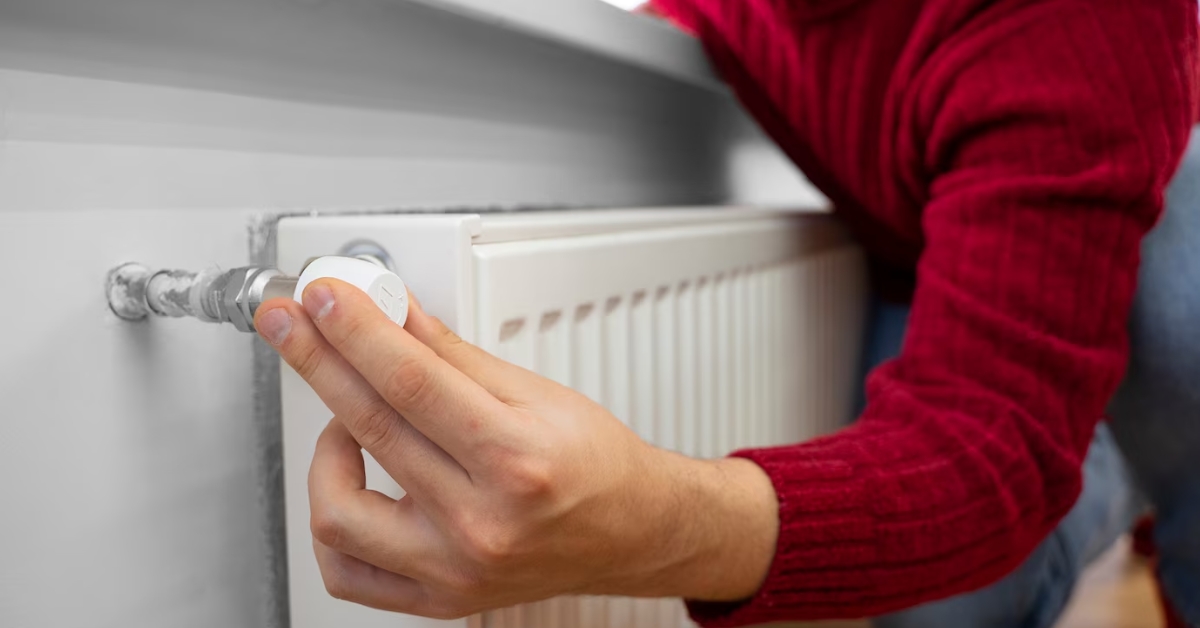
Before making any adjustments, perform a visual inspection of your heater. Check for any obstructions, such as furniture or items blocking the vents, and remove them immediately. Keeping the area around your heater clear ensures proper airflow and reduces the risk of overheating.
4. Monitor the Heating Element
The heating element is the core of your electric heater, converting electrical energy into heat. If you notice that your heater isn’t warming up as efficiently as it used to, the heating element could be damaged. Look for signs of corrosion, pitting, or burns. A damaged element can make your heater work harder, driving up energy costs. If you spot any issues, have the heating element repaired or replaced.
5. Store Heating Elements Carefully
If your heater has removable heating elements, proper storage is key to prolonging their life. Store elements in a cool, dry place, and avoid exposure to moisture or corrosive materials. Many heating elements are prone to rusting when exposed to humidity, which can reduce their efficiency.
Read Also: 5 Benefits of Electrical Heating Solutions
| Task | Frequency | Why It’s Important | How to Do It |
|---|---|---|---|
| Clean Heater Surface | Every 1-3 months | Prevents dust buildup that can hinder performance and cause hazards | Wipe down the exterior with a damp microfiber cloth, paying attention to vents and grilles. |
| Inspect Heating Element | Annually or when performance drops | Ensures the heater generates heat efficiently | Check for signs of corrosion, burns, or damage. Replace if necessary. |
| Check Air Ducts | Every 6-12 months | Maintains efficient heat distribution and prevents energy loss | Inspect for leaks or blockages, and repair or replace damaged sections. |
| Clean Thermostat | Every 6 months | Ensures accurate temperature control and energy savings | Wipe down the exterior and test voltage using a multimeter. Replace batteries if needed. |
| Professional Inspection | Annually | Detects potential issues and ensures safe, efficient operation | Hire a qualified professional to inspect wiring, connections, and components. |
6. Handle Elements with Care
In addition to careful storage, be mindful of how you handle heating elements. Natural oils from your skin can damage the surface, leading to reduced efficiency or even malfunction. Always wear cotton gloves when handling the elements to avoid contamination.
7. Keep Surfaces Clean
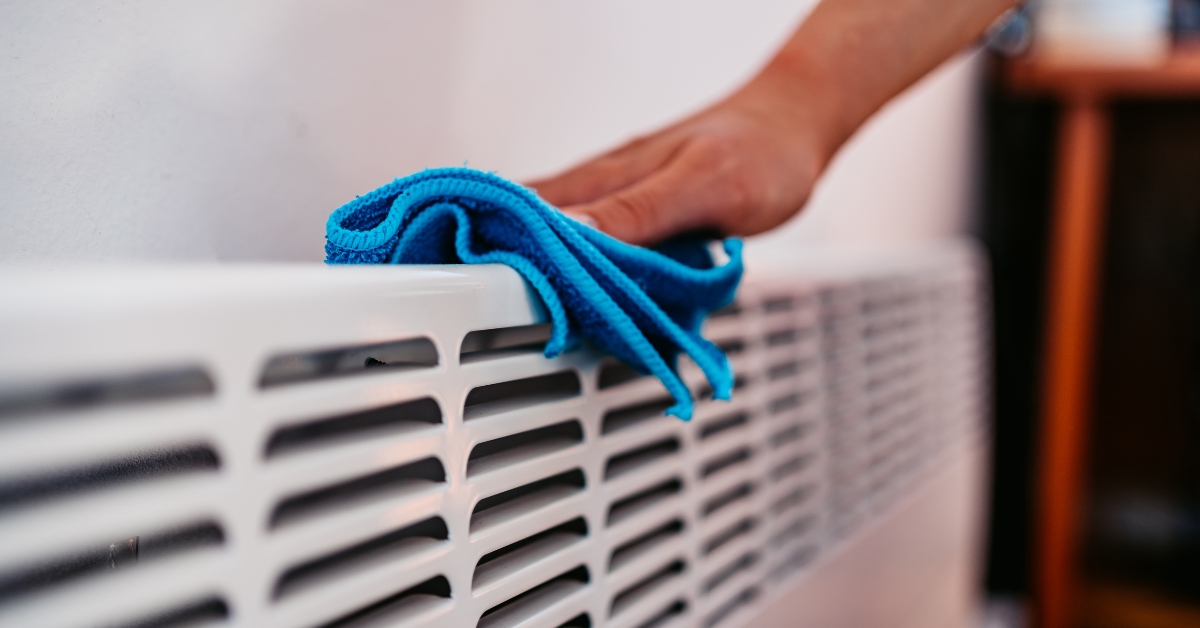
One of the simplest yet most effective ways to maintain your electrical heating system is by regularly wiping it down. Even if your heating unit is housed in a clean space, dust and particles will still find their way onto the surface. It's important to keep the exterior clean and pay special attention to ducts and vents, which can easily gather dust.
A buildup of dust in these areas can obstruct airflow, leading to inefficiency or, worse, dangerous hazards. A quick wipe-down can go a long way in maintaining safe and efficient heating.
8. Clean the Thermostat
Your thermostat is a vital part of your heating system, regulating your home's temperature. If it’s not functioning properly, it can disrupt your heater’s ability to create the ideal environment. A broken thermostat may not automatically switch your heater on or off, leading to higher energy consumption and, ultimately, larger bills.
Regularly cleaning your thermostat can prevent these issues. For a more detailed inspection, you can test the voltage with a multimeter. If the reading is low or non-existent, it could indicate problems like loose wiring or dead batteries. Replace the batteries and tighten any loose connections. Always consult a professional if you’re unsure about handling the inspection yourself.
9. Upgrade Your Thermostat
Investing in a smart thermostat is a great way to improve your heating system’s efficiency. These thermostats allow for better temperature regulation, saving energy and reducing your bills. By lowering your thermostat by just 10 degrees for eight hours a day during colder months, you can significantly cut energy costs.
A smart thermostat can be controlled remotely via a smartphone or tablet, making it easier to manage your home’s temperature, even when you're not there. It can learn your schedule and automatically adjust for energy savings, making your home both comfortable and energy-efficient.
10. Unblock Your Air Ducts
Blocked air ducts can prevent your heater from effectively distributing warmth throughout your home. Poorly sealed or insulated ducts can overburden your heater, resulting in higher energy consumption.
An easy way to solve this problem is by checking for obstructions in your vents and ducts. Remove any blockages and make sure the ductwork is properly sealed. If issues persist, it may be time to replace or repair the system.
Credit: Matthias random stuff
How to Clean Your Electrical Heating System?
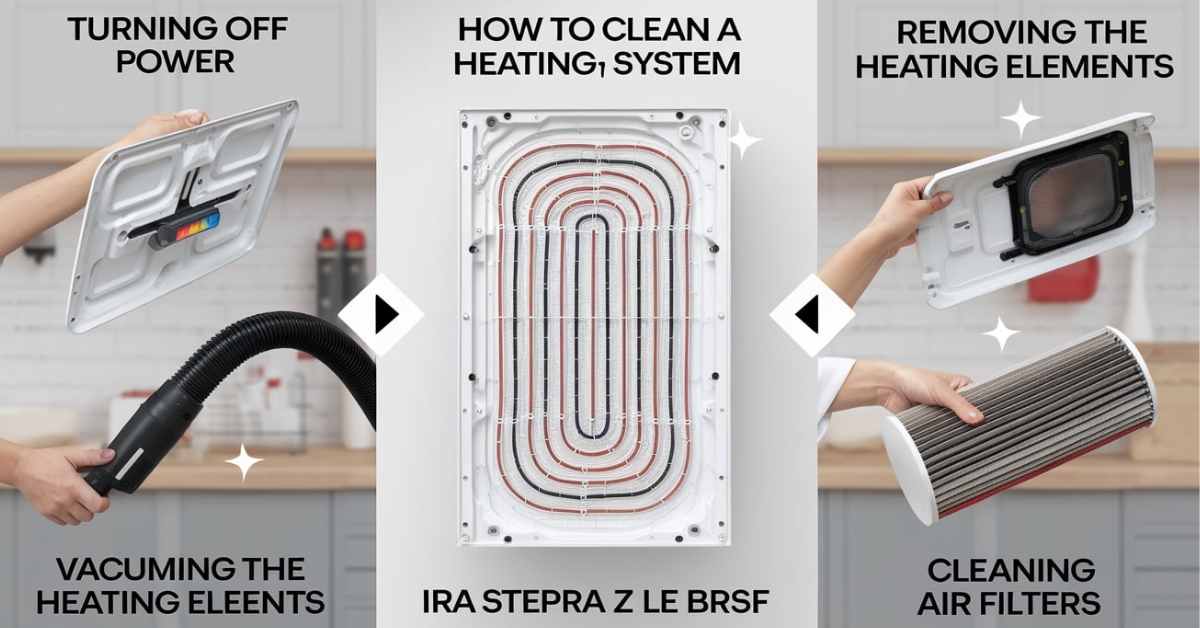
Cleaning your electrical heater doesn’t have to be a time-consuming task. With just a few minutes of effort, you can keep your heater working efficiently. Here’s a simple guide to help you:
Equipment for Cleaning:
- Sponge
- Microfibre cloth
- Bucket of water
- Dish soap
- Vacuum with a brush attachment
- Mask (optional for dust-sensitive individuals)
Make sure to use a microfiber cloth to collect dust without spreading it. Avoid spray detergents unless specifically designed for heaters, and always spray onto the cloth, not directly onto the heater.
Turn the Heater Off
Before cleaning, switch off your heater and give it 10-15 minutes to cool down. Even if it doesn’t get hot to the touch, it’s safer to work with the heater off during maintenance.
Inspect the Appliance
After turning it off, visually inspect your heater for dust, debris, and any signs of damage. This will allow you to spot issues you might otherwise miss.
Vacuum Cavities, Vents, and Grilles
Vents and grilles are common areas where dust accumulates. Use a vacuum with a brush attachment to clean these areas thoroughly. Pay special attention to oil-filled radiators or panel heaters, as their design often traps dust in cavities.
Wipe the Heater’s Exterior
Using a damp microfiber cloth, wipe down the heater’s surface, paying attention to any nooks and crannies. For stubborn stains like fingerprints, use a drop of dish soap on a sponge to gently clean the area.
Dry the Exterior and Plug it Back In
After cleaning, allow the heater to dry completely before plugging it back in. Water and electricity are a dangerous combination, so ensure there’s no moisture left before turning the heater on.
Credit: FMIPRODUCTS
Switch to Efficient Electrical Heating
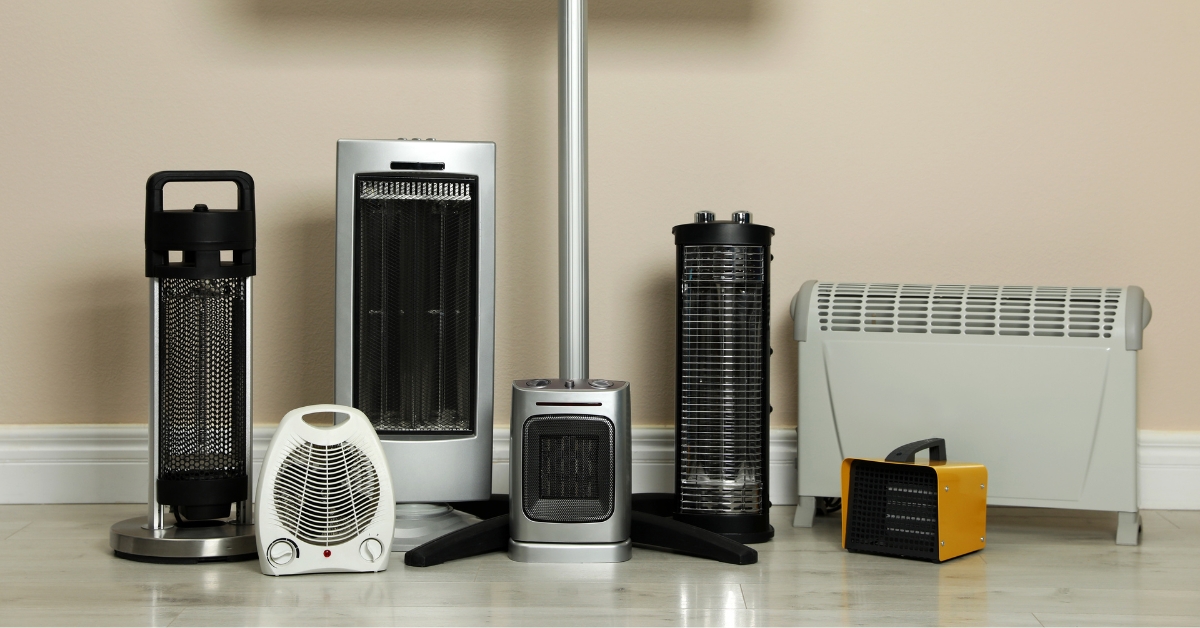
If maintaining your current heating system feels like too much work, consider upgrading to a more efficient one. Smart heaters are designed to heat your home while being cost-effective. At Meteor Electrical, we offer a range of efficient heaters that require minimal maintenance and help lower your energy bills.
Regular inspections and routine cleaning are key to ensuring your heating system runs smoothly, without wasting energy or driving up your costs. Other ways to keep your home energy-efficient include:
- Conducting energy assessments to evaluate your heating system
- Installing certified smart thermostats and energy-efficient units
- Using water heaters that don’t require special taps
Enjoy Excellent Heating with Meteor Electrical
Maintaining your electrical heating system doesn’t have to be complicated. With regular cleaning, inspections, and a few simple upgrades, you can ensure your heater runs efficiently and safely all year long. By investing in a smart thermostat and keeping your air ducts clean, you can significantly reduce your energy bills while maintaining a comfortable home environment.
At Meteor Electrical, we provide high-quality, energy-efficient heating solutions that require minimal upkeep. Whether you're looking to upgrade your heating system or need reliable electrical supplies, Meteor Electrical has everything you need to keep your home warm and energy-efficient. Explore our wide range of smart heaters and accessories to enjoy a hassle-free heating experience.
FAQs
1. How often should I clean my electric heater?
It's recommended to clean your electric heater at least once every few months, or more frequently if dust accumulation is noticeable. Regular cleaning helps maintain efficiency and prevent hazards.
2. Can a dirty air duct affect my electric heater's performance?
Yes, blocked or dirty air ducts can reduce your heater's efficiency by obstructing airflow, making it work harder and increasing energy consumption.
3. What are the benefits of using a smart thermostat with my electric heater?
A smart thermostat can help you save energy by automatically adjusting the temperature and providing remote control through your smartphone, leading to lower energy bills.
4. How do I know if my heating element needs replacing?
If your heater takes longer than usual to reach the desired temperature or if you notice signs of corrosion, burns, or damage on the heating element, it may need replacing.
5. Is professional maintenance necessary for electric heaters?
While regular cleaning and inspections can be done by homeowners, it's advisable to have a professional inspection annually to ensure all components are in good working order.

